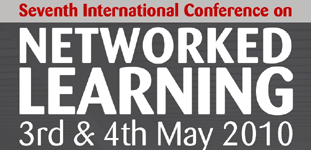

Cops’ creation and evolution sustained by ICT tools and services
Brigitte Denis & Perrine Fontaine
Centre de Recherche sur l’Instrumentation, la Formation et l’Apprentissage - Université de Liège (CRIFA-ULg)
Abstract
This paper reports the representations and practices evolution of two CoPs' members of the domain of education who used ICT tools and services supporting collaborative edition and documents production. These artefacts related to multimedia authoring, knowledge management and mediation are based on the respect of standards allowing data accessibility, reusability and interoperability. They have been developed within the framework of the European project PALETTE through a participatory design process in which these CoPs were involved.
The evolution of the CoPs' members' representations and practices was observed through answers to a questionnaire (before and after the activities), the individual logbooks weekly handled by the participants, interviews and their productions.
First, we observed that the use of several tools or services allows the members to become more competent in the domain of the ICT in terms of practices and technological literacy. They discover more transverse functions through the tools and feel more comfortable when using new interfaces. This also decreases fears of certain members who had negative representations regarding ICT.
Then, the scenarios concretely offered to the CoPs' members to live collaborative activities supported by ICT artefacts. They could exchange ideas, resources and knowledge. These experiments enabled them to refine their representations about collaborative learning and to get reference tools to support their future activities. They declared the use of these artefacts allowed the emergence of a CoP but also the development of the feeling of belonging to a CoP. The tasks realization during the trials created some common interests between the members. For many of them it was their first experiment in collaborative edition. They learned favourable modes and codes to produce and exchange when carrying on this kind of task. They also perceived the importance of the role of a CoP animator.
As for the production of documents, the discovery of several new tools allowed the CoPs' members to compare them with different editors and examine their advantages and disadvantages. Even if the tools were not still or sufficiently accepted and adopted by the members, this comparison allowed a certain awareness of the importance of standards, exchangeable documents and durability of data.
| About NLC | Welcome Messages| Acknowledgwments | Conference Proceedings| Keynote Speakers| Index of Presenting Authors| Contact |